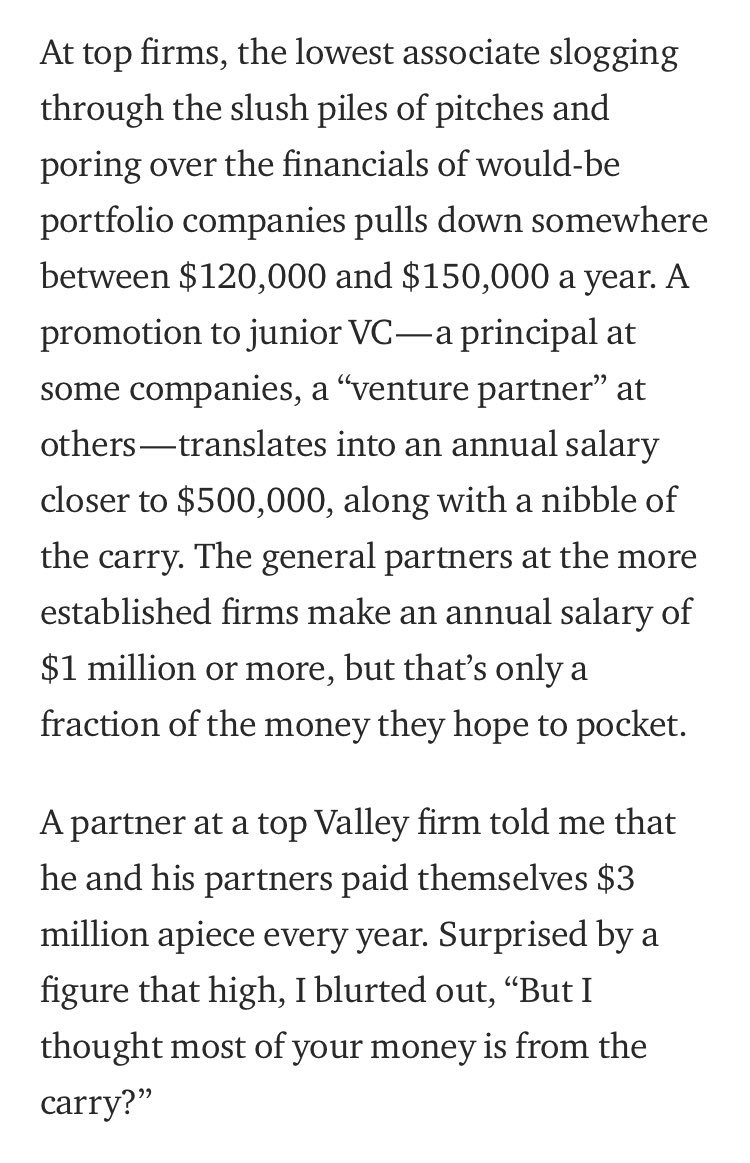it's called CULTURAL EVOLUTION
~ here's a thread where i try to unpack it ~
Here he describes the process that determines the behavior of scientists: slatestarcodex.com/2019/01/08/boo…
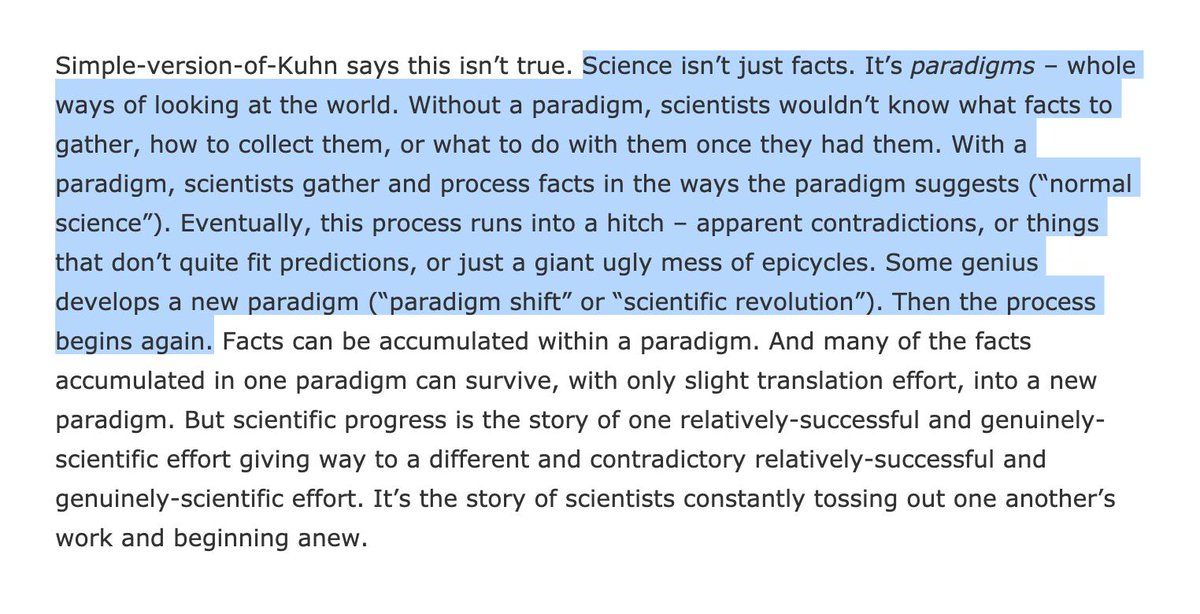
Paradigms are models of the world (i.e. beliefs). We all rely on them to guide our behavior. If a paradigm seems fruitful, you'll join in. If not, you'll explore alternatives.
The very specific "male romper" paradigm is a part of the larger "fun/risky clothing" paradigm, which is a part of the "attract attention" paradigm.
"Capitalism" is general, and gets elaborated into all sorts of specific policies
(For example, even if you can ignore the irony of believing in capitalism and engaging in monopolistic rent-seeking, doing so might get you ostracized from the community.)
@KevinSimler has written an excellent essay on this: meltingasphalt.com/crony-beliefs/
After he published his review of "The Structure of Scientific Revolutions" he published an addendum slatestarcodex.com/2019/01/10/par…
"Paradigms All The Way Down"
It talks about how our perception is governed by our paradigms:
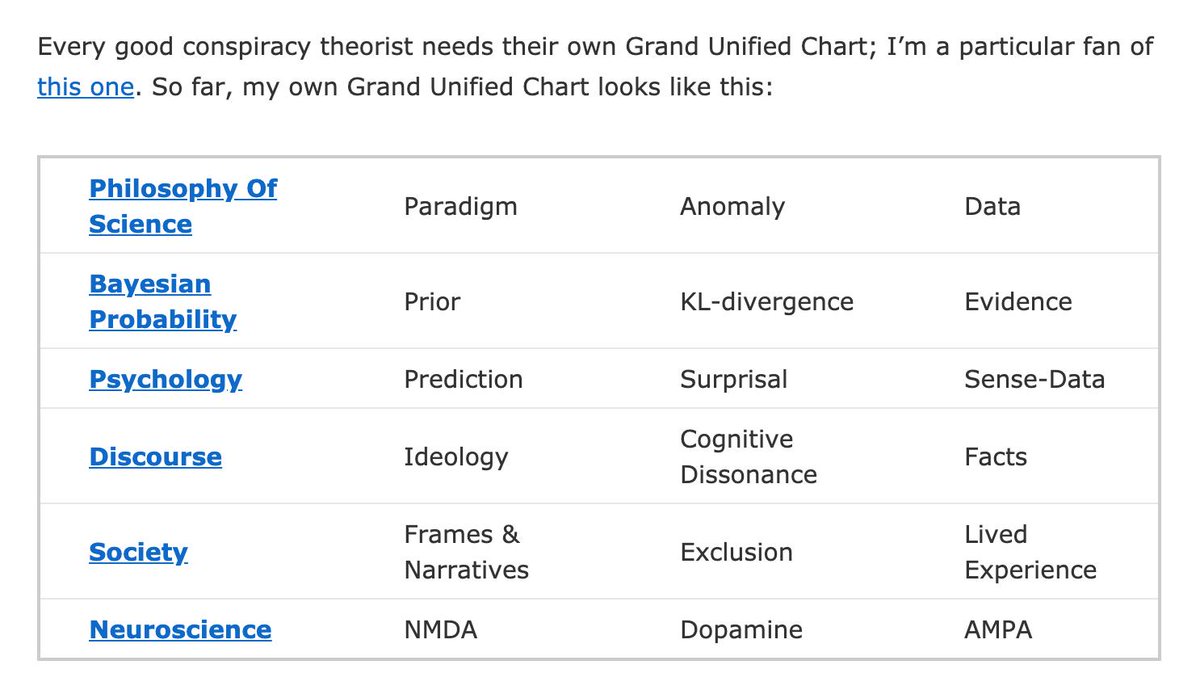
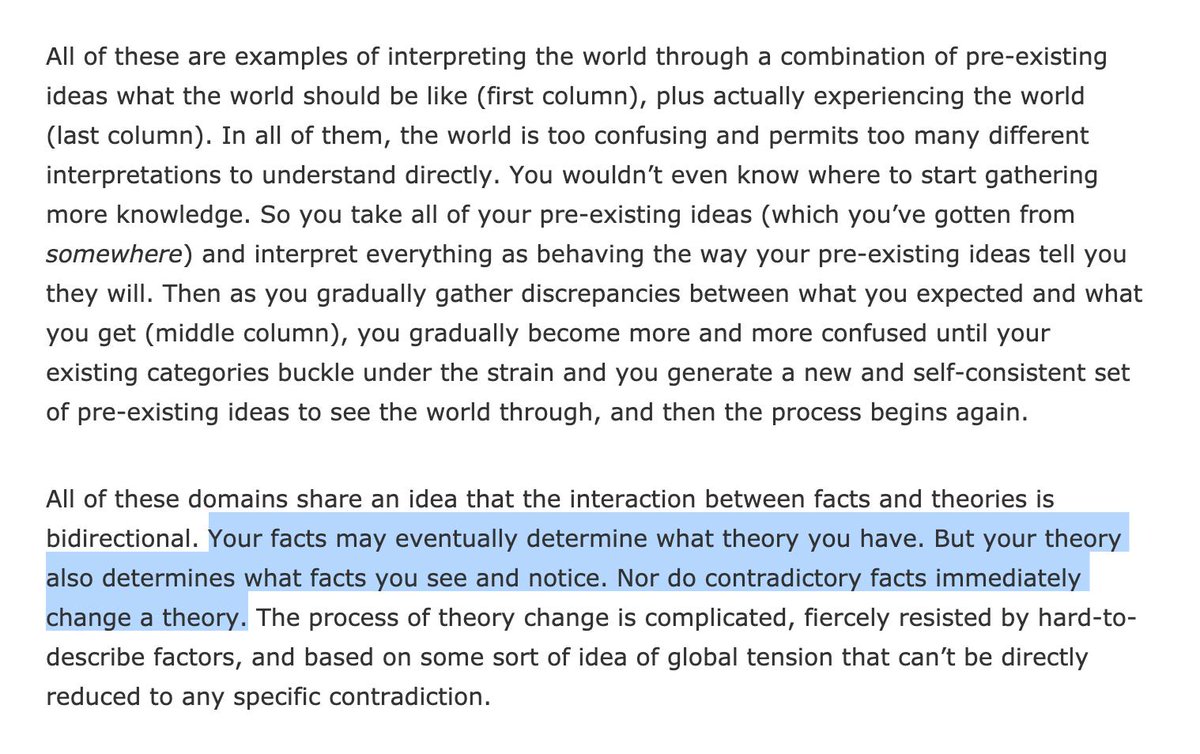
This gets us to the next cultural evolution theme: independent thinking is *dangerous*
Some tribes use "oracle-bones" to tell them where to hunt. Others have an elaborate process for preparing manioc, a toxic root. They're both essential for survival.
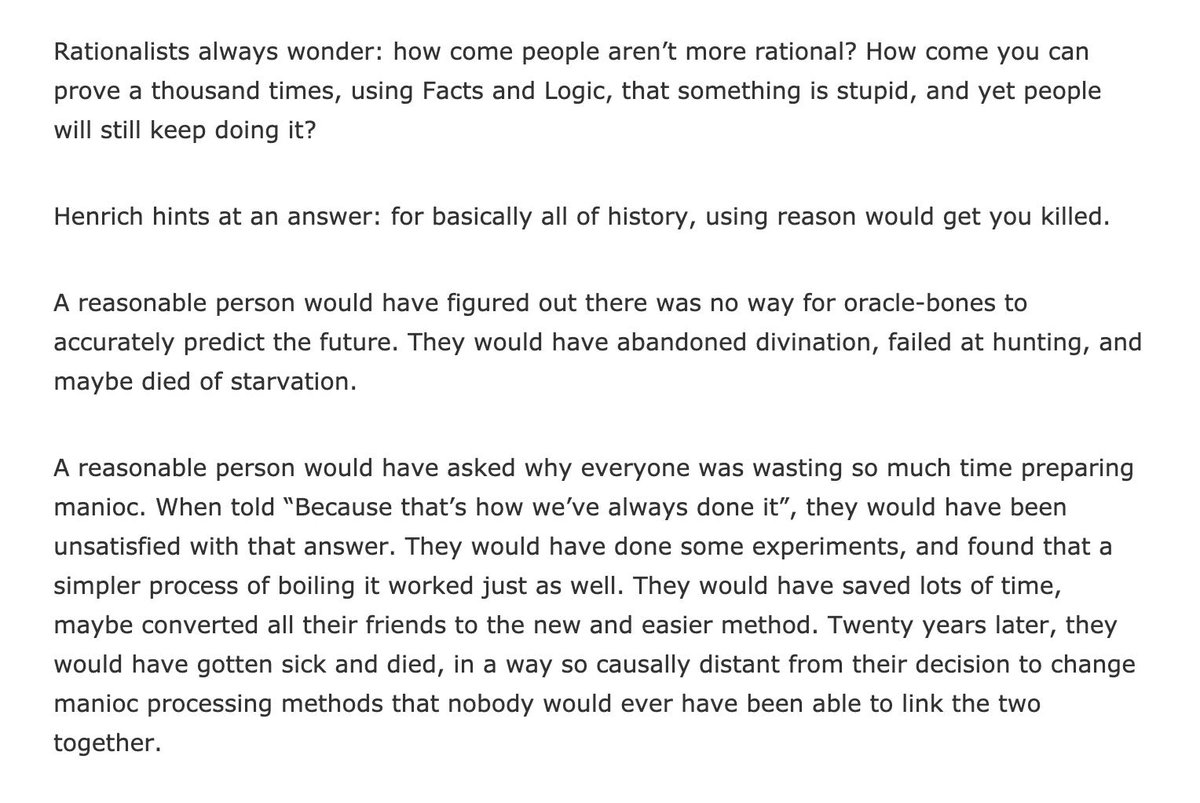
(This is an argument for Chesterton's fence: you don't want to mess with paradigms that work, because you're probably not so smart.)
I think the theory of cultural evolution could connect to psychology and economics to explain a lot of human behavior. If you can figure out what paradigms a person has, you can predict a lot about what they'll do.
Having a shared language around this could connect a lot of ideas in business, science, and culture broadly.
I wonder what progress it could unlock




